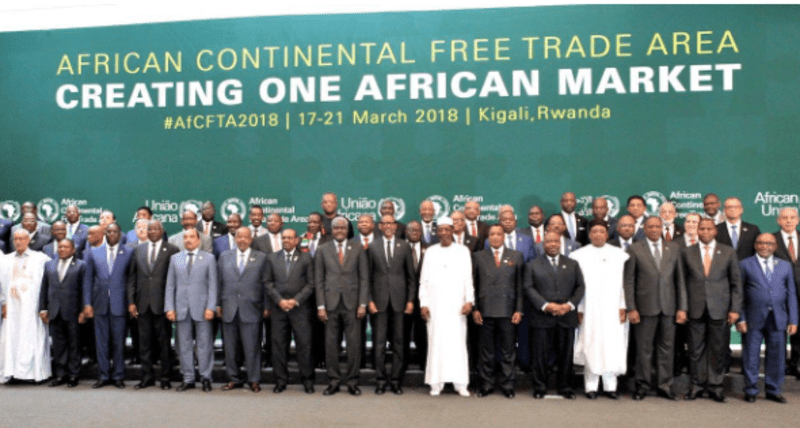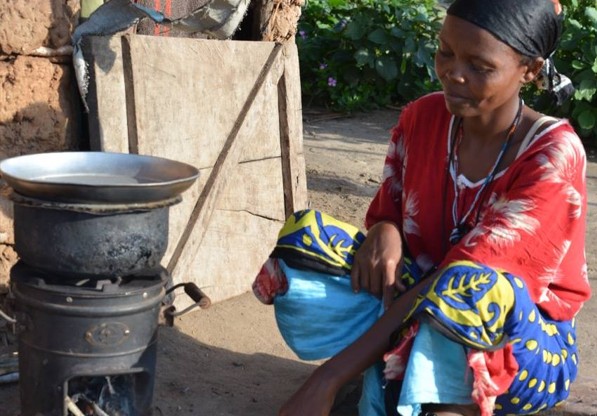Kenya faces Sh22.53bn revenue loss under full free trade area implementation

Kippra therefore says the potential loss for Kenya poses a significant hurdle in the AfCFTA's implementation, as tariff revenues assume critical importance as a source of revenue stream.
Full implementation of the African Continental Free Trade Area (AfCFTA) will deny Kenya substantive revenue to the tune of Sh22.53 billion, a new policy study has revealed.
The loss will be a result of the forgone import duties since the free trade area is keen on leveraging tariff liberalisation, an initiative that removes or reduces tariffs and quotas in a bid to increase trade among countries.
More To Read
- CS Kinyanjui: Kenya cannot develop while rejecting all funding options
- Eastleigh’s 24-hour economy key to Kenya’s commerce, says CS Lee Kinyanjui
- Tech drives Africa’s private capital boom as Q3 deals surge to Sh646 billion
- Kenya’s exports to EAC partners grow as diaspora sends Sh1 trillion home
- Kenya-UK trade hits Sh340 billion for the first time
- Unequal infrastructure slows county development, new index shows
A tariff refers to a tax that is imposed by one country on the goods and services imported from another country to influence it, raise revenues or protect competitive advantages.
On the other hand, a quota refers to a government-imposed trade restriction that limits the number or monetary value of goods that a country can import or export during a particular period.
The study findings by the Kenya Institute for Public Policy Research and Analysis (KIPPRA) project that upon full realisation of the tariff liberalisation scenario, Kenya's tariff revenue will be slashed approximately by 16 per cent.
Consequently, the collection of the applied tariffs will also reduce by about the same margin of 16 per cent.
Kippra therefore says the potential loss for Kenya poses a significant hurdle in the AfCFTA's implementation, as tariff revenues assume critical importance as a source of revenue stream.
The simulation results show that cane or beet sugar and chemically pure sucrose exhibit the highest revenue loss at Sh3.52 billion, followed by motor cars and other motor vehicles principally designed for transport at Sh1.85 billion.
Notably, other products that experience significant revenue loss include mixtures of odoriferous substances, road tractors for semi-trailers, milk and cream in solid forms, finishing ceramics, cement clinkers, and fresh apples.
Conversely, the research firm notes that the enhanced efficiency resulting from the elimination of tariffs within the African Continental Free Trade Area (AfCFTA) would ultimately yield benefits for consumers.
"This process of tariff removal not only has the effect of reducing the prices of commodities, but it also curtails the degree of protectionism that was put on certain sectors through the imposition of higher tariffs," Kippra says.
For instance, it notes that the sphere of protectionism of manufacture of dairy products would reduce by 0.02 per cent while motion picture, radio, television, and other entertainment activities would reduce by 0.15 per cent following tariff elimination.
Other sectors include the manufacture of products of wood, sawmilling, fishing, and the manufacture of beverages.
AfCTA benefits
Despite the downsides, the African Continental Free Trade Area (AfCFTA) presents a vast number of benefits for the country in trade relations with other African states.
Referred by many sector players as a game-changing initiative, the free trade area, according to the research firm, is poised to create a unified market for goods and services across the African continent.
It presents significant opportunities for Kenya to expand its Africa export markets, contributing to GDP growth and sustainable economic development.
By participating in regional value chains, promoting industrialization, and diversifying its export base, Kenya aims to leverage the AfCFTA to enhance its economic prospects.
The main products targeted for export include fisheries, medicine, fertilizer, paper, industrial chemicals, livestock, fruits, vegetables, spices, handicrafts, mining, and oil and gas.
Priority service exports include professional services, tourism, education, healthcare, financial services, ICT, cultural and sports services, and transport, and logistics.
To date, the country is noted to have made significant progress in implementing the AfCFTA, demonstrating its commitment to regional integration and intra-African trade.
In October 2022, Kenya exported its first goods of locally made car batteries and tea to Ghana under the AfCFTA.
This came after the release of the Kenya AfCFTA implementation strategy (2022 -2027) to consolidate, diversify, and expand exports to African markets and ensure that its manufacturing sector attains 5% real value-added increases per annum.
As a result, Kenya has seen growth in exports to African countries, with notable increase in exports to Ethiopia and Egypt.
Kenya’s exports to Africa increased by 15.7 percent in 2022, with the East African Community (EAC) being a key market. In addition, exports to the EAC grew by 17.7 percent in 2022, reaching Sh357.7 billion compared to Sh309.3 billion in 2021, driven by increased exports to Tanzania and Rwanda.
Generally, the AfCFTA is expected to boost intra-African trade by 52.3 percent by 2025, increase Africa's income by up to $450 billion (Sh58 trillion by 2035.
Top Stories Today













































